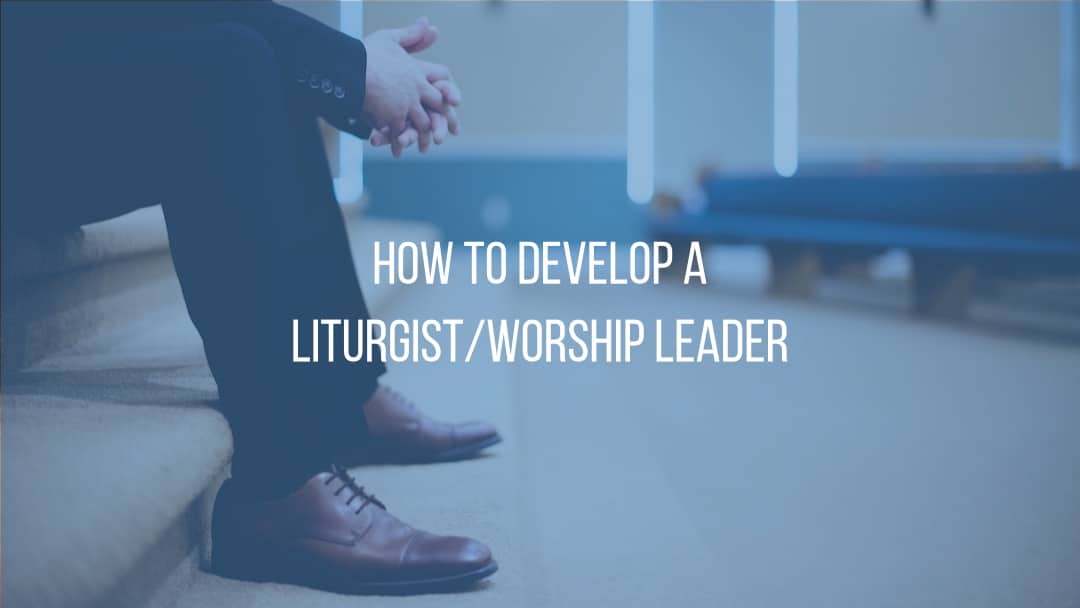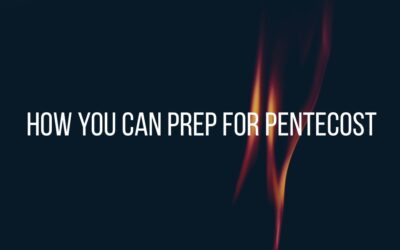Training a liturgist/worship leader is a vital task within any faith community. As my friend and former Senior Pastor, Dr. Mark Roberts puts it, the worship leader or liturgist “is actually putting prayerful words in people’s mouths. The liturgist is teaching people how to be in relationship with God. There is nothing more sacred or transformational than this.” So, what are the key steps in the development of a worship leader? And, how can these steps be successfully achieved? Looking back on my own growth path and drawing wisdom from renowned theologian Dr. Robert E. Webber, let’s delve into some resources and initiatives to meet this challenge.
Lessons from my own journey
Having sung and led singing in services from a very young age, my first serious thoughts about planning and leading worship came in Dr. William Lock’s Introduction to Worship class at Biola College (now Biola University). Through weekly readings, written responses, guest lectures and field trips to various worship services, my narrow preconceptions of worship were blown wide open by this little one-unit class. (Fellow music majors will feel my pain regarding one-unit courses!)
Most notable was a lecture by Dr. Bruce Leafblad, at that time Minister of Music at Lake Avenue Congregational Church in Pasadena, CA, and later Professor of Church Music and Worship at Southwestern Baptist Seminary. In addition to pointing us to Isaiah 6:1-11 as a biblical example of the “Revelation and Response” nature of the worship experience, Leafblad presented a compelling definition of Christian worship:
Worship is communion with God, in which believers, by grace, center their minds’ attention and hearts’ affection on the Lord, humbly glorifying God in response to his revelation of himself.
His lecture launched me on the path of designing and leading worship in a way that would facilitate this kind of communion—divine dialogue—between God and God’s beloved community.
LESSON LEARNED: Interacting with curated readings, a variety of in-person or virtual worship experiences and the words of wise leaders, especially when in concurrent dialogue with others, can be formative, if not transformational.
I first became aware of Robert Webber shortly after the publication of his book, Worship Is a Verb. As the title reveals, Webber’s central theme is that worship is “not something done to us or for us, but by us.” Though this may seem to go without saying, this truth is just as much a revelation to today’s worshipers as it was nearly four decades ago. We are culturally conditioned to be an audience, enthralled by the performers on stage; or fans, cheering on (or heckling) those who are on the field playing the game.

Even more enlightening for me was Webber’s exploration of a four-fold, historical worship pattern: The Gathering…The Word…The Table…The Sending. As a liturgist, a title I had not previously embraced, I wrestled with the resulting questions. Have I been missing critical aspects of what it means to be invited by God into worship? Have I minimized the various dimensions of our response, our gathering, our entering into “the Presence?” Is my inclusion of God’s Word too narrow and too dependent only on the preacher’s text of the day? Have we undervalued the Lord’s Table and relegated it to a monthly or quarterly afterthought? Are we just leaving worship rather than being blessed to be a blessing and being sent to participate in the missio Dei, the mission of God to redeem, reconcile and restore?
I invited other music staff members into the reading and discussion of Worship Is a Verb. Then members of the Worship Committee. Then choir members and interested members of the congregation at large. The study, the discussions, the wrestling and the resultant creative thinking led to an enlivened and deepened corporate worship life.
LESSON LEARNED: Growing as a liturgist/worship leader requires theological and historical study and reflection, not just musical talent. The wisdom of those who have walked this path before us is a treasure trove.
LESSON LEARNED: Widening the conversation around challenging teaching and including other creatives and the congregation at large can energize momentum toward deeper, richer worship. The designated worship leaders find themselves joined, supported and encouraged by others.
Lessons from Dr. Robert E. Webber
There is an abundance of books, articles and other publications on the subject of Christian worship. Here, I have chosen to emphasize Dr. Robert Webber (1933-2007) because he has been the most influential in my own work as a liturgist, because he spoke most directly to those in evangelical churches like those I’ve served and because of the depth and breadth of resources attributed to him. In addition to his many writings, Webber was the editor of the eight volume Complete Library of Christian Worship and the founder of The Robert E. Webber Institute for Worship Studies. In fact, the institute offers hybrid masters and doctoral degrees, as well as certificates and workshops. These would provide the most in-depth path toward developing liturgists/worship leaders.
Through his extensive research and experience, Webber emphasized cultivating a holistic approach to worship, rooted in historical liturgical practices and a genuine connection with God. Here are some LESSONS LEARNED from his various teachings about developing liturgists.
- Embrace a balanced theological foundation. Webber emphasized the importance of worship leaders having a solid theological foundation. This includes a comprehensive understanding of Scripture, the creeds, and the historical traditions of the church. By grounding themselves in these principles, worship leaders can guide their congregations towards a deeper and more meaningful worship experience. Encourage worship leaders to engage in theological studies, attend seminars, and participate in discussions within their faith community to broaden their knowledge and understanding.
- Cultivate a Heart of Worship. Webber believed that effective worship leaders should have a genuine heart for worship. This goes beyond mere musical talent. It involves fostering a personal relationship with God, a life of prayer, and a willingness to surrender to the leading of the Holy Spirit. Encourage worship leaders to invest time in personal worship, seeking moments of solitude and reflection to deepen their connection with God. This will enable them to lead from a place of authenticity and inspire others to do the same.
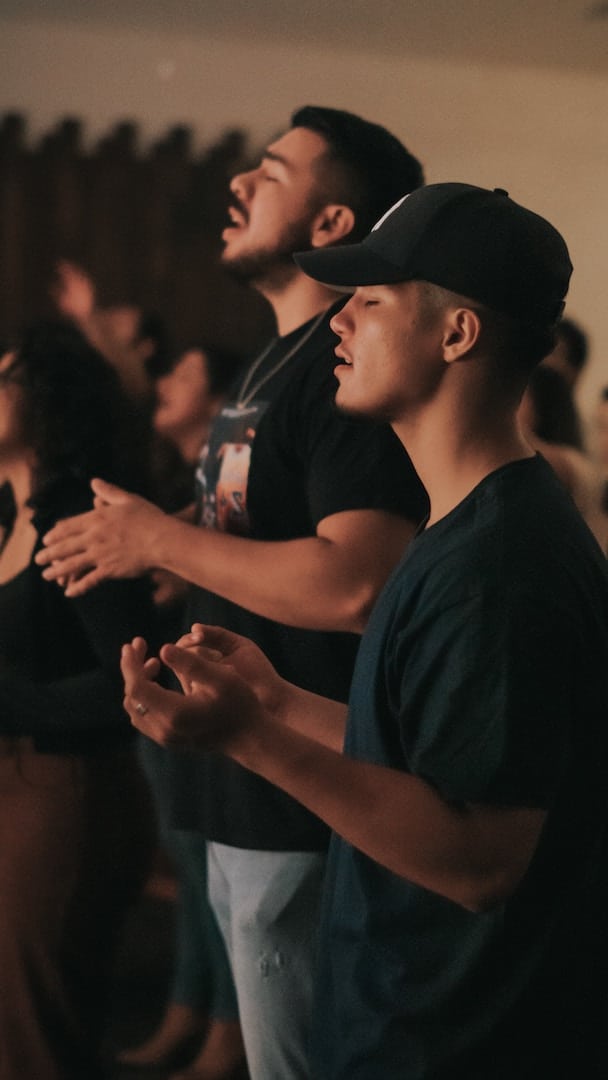
- Encourage Creativity and Authentic Expression. While traditional worship elements hold great value, Webber advocated for the integration of creative and authentic expressions within worship. Worship leaders should be encouraged to explore various musical styles, incorporate visual arts, and employ multimedia tools to enhance the worship experience. This will enable them to connect with a diverse congregation and create an inclusive atmosphere where everyone can engage meaningfully.
- Develop Leadership and Pastoral Skills. Webber believed that worship leaders should not only be talented musicians but also effective leaders and pastors. They must possess the ability to shepherd and care for their congregation, fostering a sense of community and guiding individuals in their spiritual journeys. Encourage worship leaders to develop skills in pastoral care, counseling, and leadership through training programs, mentorship, and practical experience. This will equip them to address the needs of their congregation and create an environment where worship can flourish.
- Embrace the Power of Liturgy and Tradition. Webber placed great significance on the role of liturgy and tradition in worship. He believed that by engaging in ancient practices and utilizing liturgical elements, worship leaders can connect with the rich history of the Church and tap into the collective worship of believers throughout the ages. Encourage worship leaders to explore the use of liturgical resources, such as prayers, responsive readings, and the Church calendar, to bring depth and structure to their worship services.
- Foster Collaborative and Inclusive Worship. Webber emphasized the importance of fostering collaborative worship experiences that include the entire congregation. Worship leaders should aim to involve various individuals with different gifts and talents in planning and leading worship. By doing so, they create a sense of ownership and unity within the faith community. Encourage worship leaders to regularly communicate and collaborate with pastors, musicians, artists, and other members of the congregation to create a diverse and inclusive worship environment.
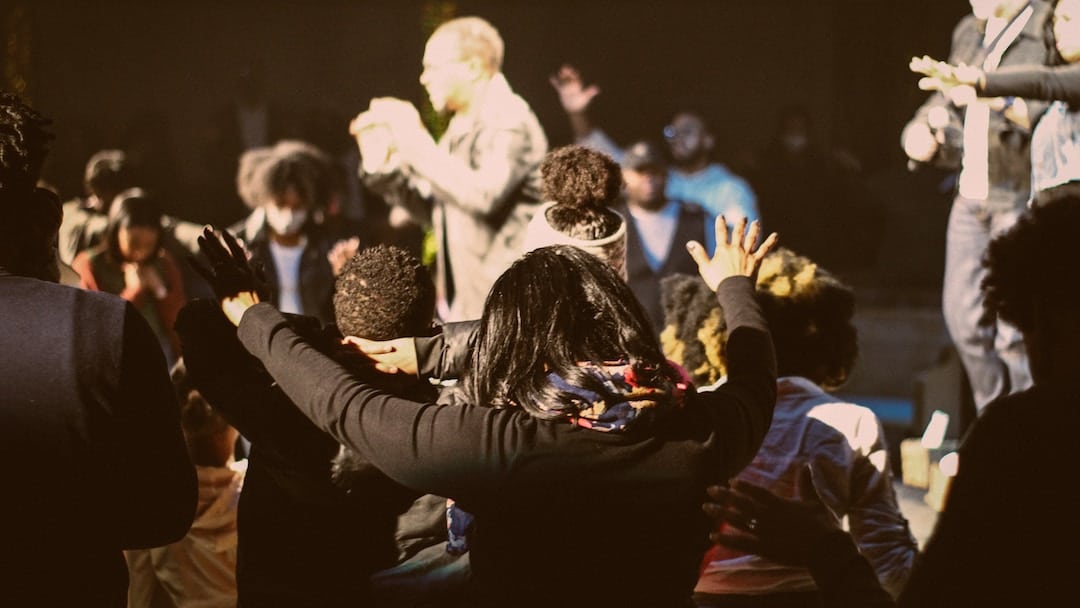
Recommendations for study, reflection and conversation
Here are a few of the many books available that would serve well as “text books” for the developing liturgist:
- Ancient-Future Worship: Proclaiming and Enacting God’s Narrative, by Robert Webber (Baker Books, 2008). Completed just before his death, this capstone volume reveals the theological and practical wisdom from a lifetime of research, study and experience.
- Webber on Worship, Volume 1 & Volume 2, by Robert E. Webber (Worship Leader Partnership, 2012). These volumes bring together articles originally published as a series of columns in Worship Leader Magazine, each one a great discussion starter.
- Worship Is a Verb, Second Edition, by Robert E. Webber (Hendrickson Publishing, 1996). This is an “updated” edition of the book that fueled my desire to be much more than a church music director. Discussion questions are included, so it may still be a good starting place.
- Honest Worship: From False Self to True Praise, by Manuel Luz (IVP Books, 2018). This is a more recent volume, written by an active worship leader who addresses worship and spiritual formation at both the corporate and the personal level. In his preface, Luz suggests that “Honest worship is worship that is not tainted by the stylistic preferences and vanities of our false selves, nor clouded by the cultural forces of narcissism or consumerism or spectacle, but instead comes from our true selves before our holy God.”
Some practical considerations
You may be a pastor or other leader who is looking for ways to develop one or more emerging liturgists/worship leaders in your congregation, whether paid or volunteer. Hopefully, the resources listed above will be of help in this vital task. Here are a few additional words of practical advice:
- Ask only for what you are willing to receive. As your liturgists grow in knowledge, understanding and vision, they will most likely want to go in new directions and try new things (or revive some ancient things!). Be ready to graciously interact, allow reasonable experimentation and support their initiatives. If you are going to say no, have a much better reason than “we’ve never done it that way before.”
- Be clear about desired outcomes and any limits to be observed. For instance, you will likely want any suggested changes to current worship patterns to be discussed with you well before implementation.
- If feasible, read any recommended materials before assigning them or, at least, at the same time. This especially applies to theological materials. Make sure that the author’s perspective either aligns with your own or is one that you are prepared to interact with. A best-case scenario is that you and your liturgist learn together!
- Provide the necessary resources. Reimburse for expenses incurred. Provide for time away to worship with other congregations or attend a workshop, conference or retreat.
- Engage a mentor. You may not have the time, energy or training to guide your liturgist on this journey. Identify someone who does. It will be a good investment in the worship life of your congregation. If I can be of help in this way, please contact me though The Pastor’s Workshop.

In conclusion
Live and streaming sources of inspiring and entertaining musical performances are ubiquitous today. Biblical teaching and motivational talks, too. If our efforts are limited to competing for an audience, we face an uphill battle. But authentic worship in spirit and truth “is the gospel in motion. It proclaims and enacts the victory of Christ over the powers of evil; the Holy Spirit delivers the saving and healing power of Jesus Christ; and we in turn extol and glorify God as we receive (present tense) the continuous gift of God’s healing presence in worship.” (Webber on Worship, Vol. 1). Developing leaders for this kind of worship is a task well worth the investment of the necessary time and resources. Doing so is one way to pray, “Hallowed be thy name. Thy kingdom come. Thy will be done on earth as it is in heaven.”
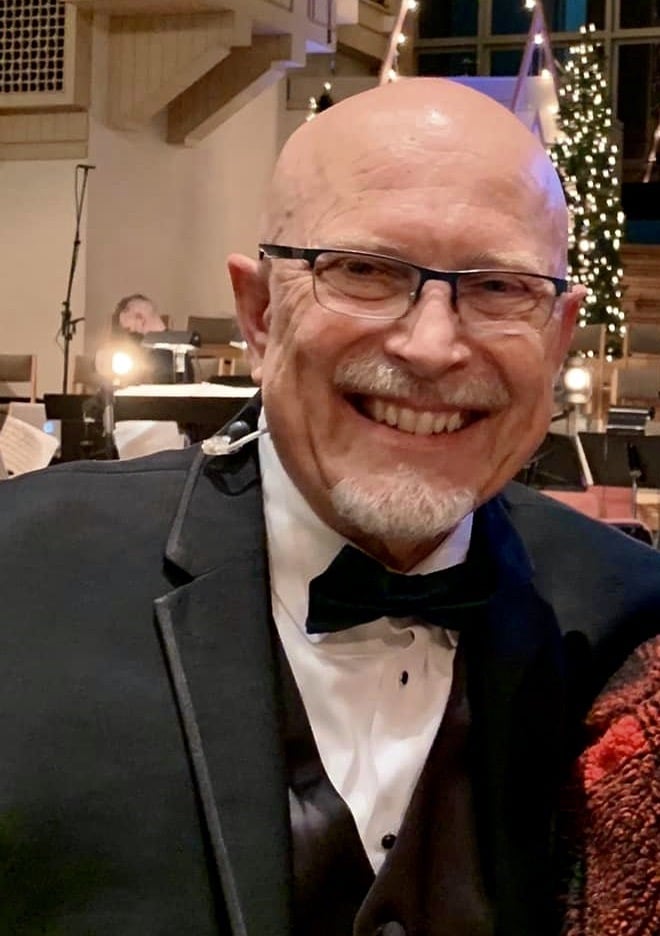
Dan Korneychuk is a liturgist, choral/orchestral conductor and leader in Christian worship and the arts. He has served congregations from a variety of traditions: Evangelical Free, Evangelical Covenant, Friends (Quaker), and Presbyterian (PC/USA).
Having retired from full-time ministry in 2022, he seeks to reflect upon his faith journey and the current crisis facing the Christian movement in the USA, and to explore a reimagining of what it means to faithfully follow Jesus in the 21st century.
Don’t Miss
The Latest From Our Blog
New Site Launches Tomorrow!
Watch this Space! Tomorrow (May 29) is the official launch of the new The Pastor's Workshop site! Return to this blog tomorrow morning for a post highlighting the new features and explaining how subscribers can get on and start using the site! Here are some new...
How You Can Prep for Pentecost
This was originally posted on May 12, 2016 on https://huffpost.com Pentecost Came Like Wildfire I'm lying on an ice pack early this morning, doing my back exercises and listening to Pray as You Go, a tool for meditation, with monastery bells, music, and a Bible...
Sacred Spaces: the Church Forests of Ethiopia
Let's Go to Ethiopia! Here’s a fun exercise with a spiritual payoff. Go to Google Maps and view aerial images of the South Gondar zone of Ethiopia. Use this button:When the page loads, you'll see a light brown countryside, mostly farmland. There are thin lines of dark...

